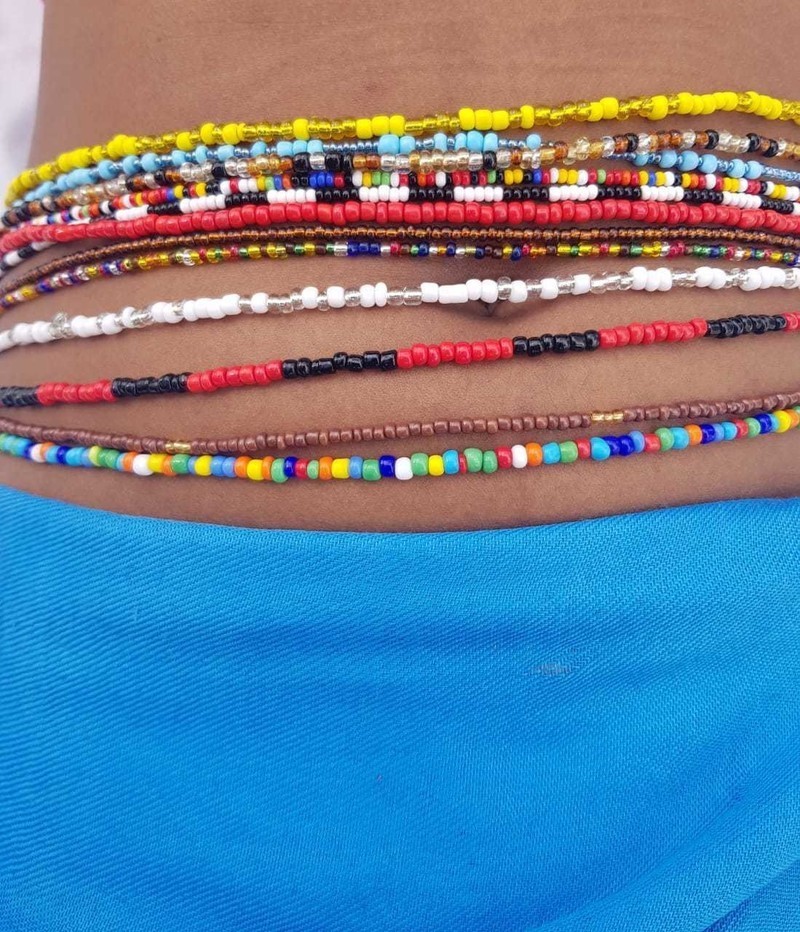
Fortification of Waist Bead: An Untold Cultural Practise of some African Women
When I was writing about the functions and usage of waist beads, I was not in the dark regarding some fortified waist beads used for different diabolical purposes by some African women.
When I was writing about the functions and usage of waist beads, I was not in the dark regarding some fortified waist beads used for different diabolical purposes by some African women.

I have learnt some cultural practises of waist bead in some African nations. Let me take for instance, Cameroon. A lady shared with me her experience in Cameroon. It was not the first time I was hearing it.
In some of these practises, there are some fortified beads women wear—
In some of these practises, there are some fortified beads women wear—
they will never conceive no matter their promiscuous lifestyle; they will never get any infectious diseases no matter how many men they do selima nkuli nkuli with, unprotected. They can never be harmed by anyone.
Once the lady is ripe for marriage, in some cultural arena of the Cameroonians for instance, some rituals will take place in order to take off the waist bead. If such is not done, she will never have a baby.
In some places, prostitutes wear the fortified ones. It keeps them away from any form of nyamanyama. No STDI or unwanted pregnancy.
In the Northern part of Nigeria, you hardly see cases of young girls conceiving out of wedlock, why? Because of the fortified waist bead.
In the Northern part of Nigeria, you hardly see cases of young girls conceiving out of wedlock, why? Because of the fortified waist bead.
Ndị ugwu kachasị eme selima nkuli nkuli. Ha na-esewa ihe dị egwu, but even at that, except if married, majority of their young girls don't get pregnant compare to their southern counterparts. Ofu ọnụ ofu belle.
So, if the waist bead is not serving as fashion, it serves as protection
Or...
Of course, some women, not only in Nigeria but other African countries get this kind of fortified waist beads and others used to trap and hold men in order to empty their pockets or do as they say.
Or...
Of course, some women, not only in Nigeria but other African countries get this kind of fortified waist beads and others used to trap and hold men in order to empty their pockets or do as they say.
This is the reason why some men are afraid of ladies wearing waist beads. The insecurity is alarming. Sometimes you do not blame them. Things are happening in the dark. Although, some men are really ignorant of the reality and cultural presence of waist beads even in Igbo land.
But, just as I do tell people, no one stops entering a car because car kills. An Igbo adage says: "a naghị ekworo maka mgbagbu aghara ọgụ". That some persons are using waist bead for diabolical purposes shouldn't make you hate it or condemn it. Person fit put jazz for hand.
Waist bead is fashion. Just fashion. Except when one chooses to wear the fortified one. Remember, it is not only waist bead that people fortify. They fortify necklace, bracelet, earrings, contact lens, etc. Onye ga-egbu gị ga-egbu gị.
Thank you for banking with us.
I paused!
Thank you for banking with us.
I paused!
• • •
Missing some Tweet in this thread? You can try to
force a refresh









